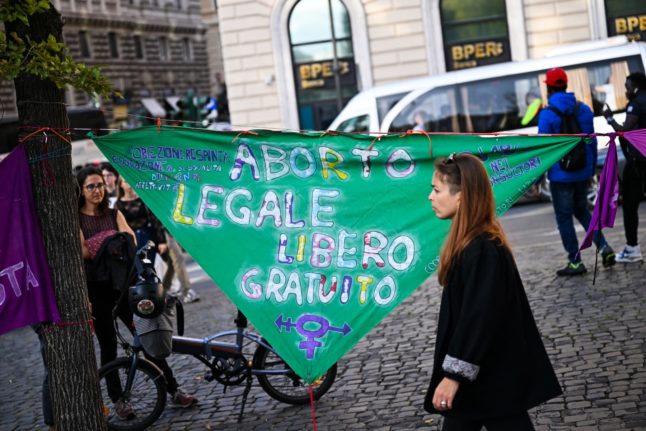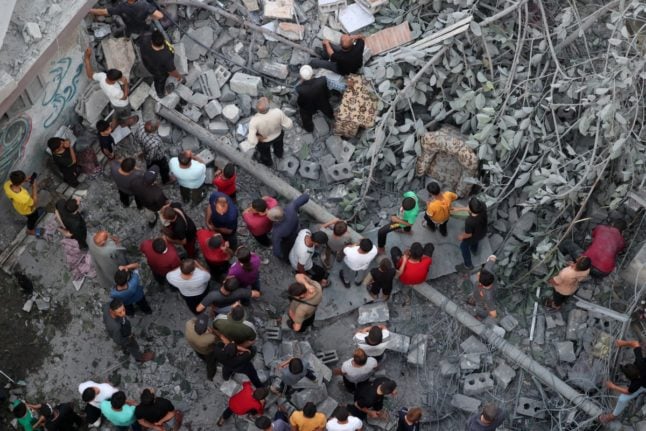The measure adopted by the Senate late on Tuesday evening allows regional authorities to permit groups deemed to have “a qualified experience supporting motherhood” to have access to women considering abortions at clinics run by the state-funded healthcare system.
The government says the amendment merely fulfils the original aim of the country’s 1978 law legalising abortion, which says clinics can collaborate with such groups in efforts to support motherhood.
Pressure groups in several regions led by the right are already allowed access to consultation clinics, and the measure may see more join them.
Some regions, such as Marche, which is led by Meloni’s Brothers of Italy party, have also restricted access to the abortion pill.
Elly Schlein, leader of the centre-left Democratic Party (PD), slammed the new law as “a heavy attack on women’s freedom”, while Five Star Movement MPs said Italy had “chosen to take a further step backwards”.
READ ALSO: What will Italy’s right-wing election victory mean for abortion rights?
Meloni has repeatedly said she has no intention of changing the abortion law, known as Law 194, but critics say she is attempting to make it more difficult to terminate pregnancies.
There have long been concerns that the election of Meloni’s hard-right coalition would further threaten womens’ reproductive rights in Italy.
Accessing safe abortions in Italy was already challenging as a majority of gynaecologists – about 63 percent according to official 2021 figures – refuse to perform them on moral or religious grounds.
In several parts of the country, including the regions of Sicily, Basilicata, Abruzzo, Molise and the province of Bolzano, the percentage of gynaecologists refusing to perform abortions is over 80 percent.



 Please whitelist us to continue reading.
Please whitelist us to continue reading.
I can think of few more divisive issues than this one, but when one’s response to another’s lawful right to offer an opinion is, as the headline states, anger, then that typically only hardens attitudes and drives all parties further apart, exactly the opposite of what one should hope for when resolution is the goal.